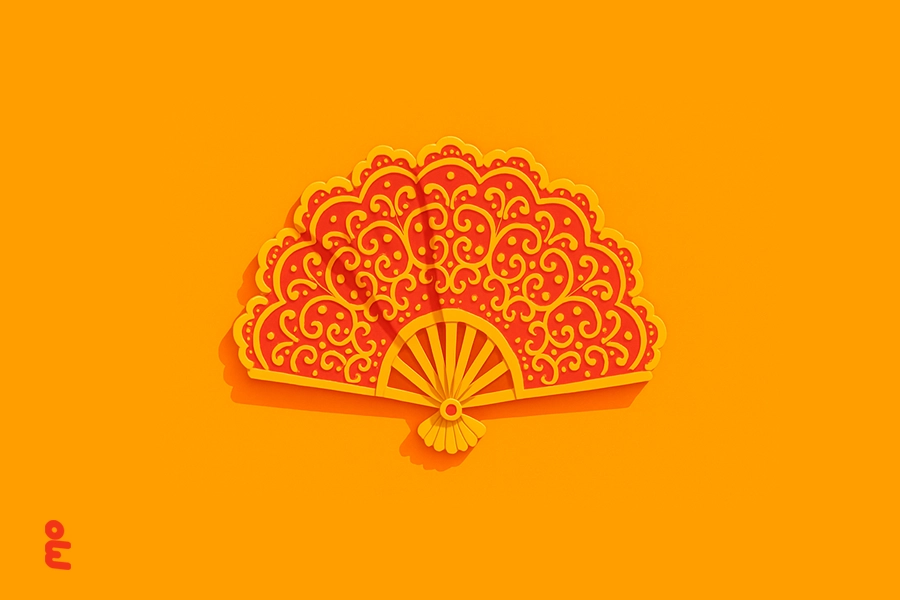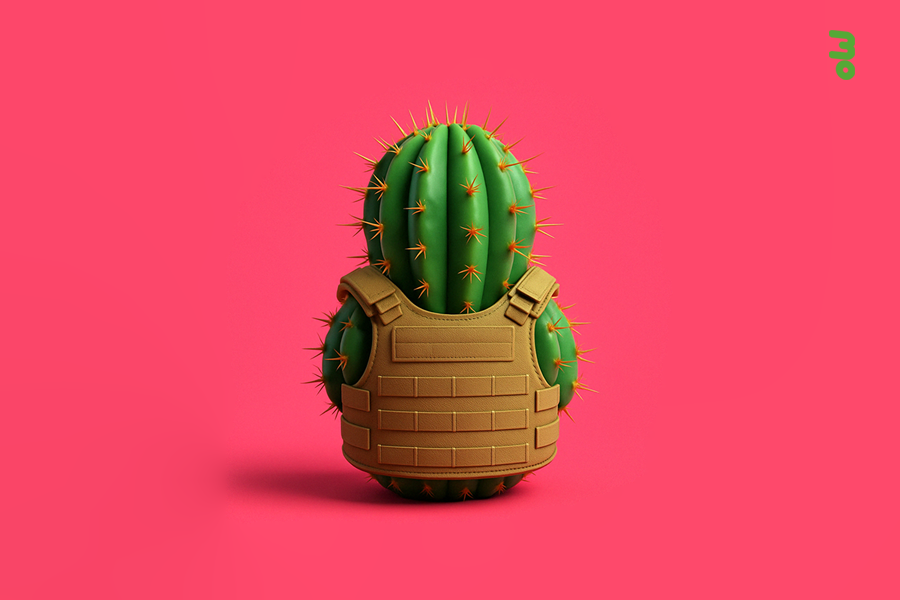Quiz: Are You a Lover or a Fighter?

Remember the last time a colleague claimed credit for your idea in a meeting. What was your first impulse – to stage a public confrontation or find an elegant way to restore justice through dialogue? This fleeting impulse reveals something fundamental about your nature. Our quiz will help you understand which archetype you gravitate toward – lover or fighter – and what this says about your personality at the deepest level.
“Lover vs Fighter” – What Does This Mean?
Forget stereotypes about saccharine romantics and mindless brawlers. The “lover versus fighter” dichotomy reflects two fundamental strategies for interacting with reality, rooted in the most ancient structures of the brain.
The Lover Archetype embodies the strategy of connection, synthesis, and harmonization. This isn’t just about romantic relationships – it’s about the ability to see connections where others see division. Lovers in the psychological sense are life’s diplomats, masters of empathy, builders of bridges between opposites. Their power lies in the ability to transform conflict into cooperation through understanding and acceptance.
The Fighter Archetype represents the strategy of overcoming, defending boundaries, and upholding principles. Fighters aren’t aggressors, but guardians of justice, ready to stand up for what matters. They see the world through the lens of challenges requiring decisive action. Their strength lies in clarity of vision, speed of reaction, and readiness to act where others hesitate.
Neurobiologically, these archetypes rely on different brain systems. In “lovers,” the oxytocin attachment system and mirror neurons responsible for empathy dominate. In “fighters,” the “fight or flight” system, controlled by the amygdala and adrenaline, is more active. But here’s what’s interesting: both systems exist in every person – the question is only which one activates faster and more frequently.
The Psychology of Conflict and Attachment in Our Quiz
Modern neuroscience reveals a fascinating picture of how our strategic preferences form. Research by Shelley Taylor at UCLA showed that beyond the classic “fight or flight” reaction, there exists an alternative “tend and befriend” strategy that is evolutionarily no less important.
When we encounter a threat or challenge, our brain evaluates the situation through the lens of past experience in split seconds. Those whose early attachment experience was safe and secure (according to John Bowlby’s theory) more often choose cooperative strategies. Their nervous system learned that connection with others is a resource for overcoming difficulties.
Conversely, people with insecure attachment experiences may gravitate toward strategies of independence and confrontation. For them, relying on themselves is a learned survival method. But here lies the trap of dichotomous thinking: in reality, successful people master both strategies and flexibly switch between them.
Our quiz accounts for this complexity. The questions are constructed to reveal not only the dominant strategy but also situations where you’re capable of switching to the alternative mode. After all, true psychological maturity isn’t getting stuck in one archetype, but dancing between them.
What Will This Quiz Show You?
The quiz is a mirror reflecting your automatic response patterns. But unlike an ordinary mirror, it shows not only what is, but potential for growth.
First, you’ll discover your dominant archetype and understand how it influences your decisions in critical moments. This knowledge is invaluable for career: imagine you’re a “lover” in negotiations with tough “fighters” – understanding the dynamics will help you adapt your strategy.
Second, the quiz will reveal your blind spots. Perhaps you consider yourself a peacemaker, but under stress automatically switch to attack mode. Or conversely – you see yourself as a warrior but avoid necessary confrontations. Recognizing these patterns is the first step toward transforming them.
Third, the results will show your integration potential. The most effective people are those who’ve learned to be “warrior-poets,” combining the strength of defending boundaries with the wisdom of building connections. The quiz will suggest which side you should develop to achieve this balance.
Personality Types You May Receive in the Results
The quiz identifies four main archetypes, each with unique strengths and growth zones. These types aren’t rigid categories – rather, they’re dominant behavioral patterns that manifest in critical situations. Understanding your type will help you consciously choose interaction strategies and develop missing qualities to achieve inner balance.
Pure Lover: Master of Harmony
These people see the world as a symphony, where every conflict is a dissonance requiring resolution. Their superpower is the ability to find common ground even with the most difficult people. In teams, they’re indispensable as mediators and inspirers. However, their shadow side is a tendency to avoid necessary confrontations and accumulate unexpressed tension.
Pure Fighter: Guardian of Justice
For them, the world is an arena where it’s important to uphold truth and defend values. They’re first to stand up for the weak and aren’t afraid to go against the current. Their directness and decisiveness inspire others to action. The shadow side is the risk of burnout from constant struggle and difficulty in building close relationships.
Adaptive Diplomat: Lover with an Iron Fist in a Velvet Glove
A rare type that has mastered the art of soft power. They prefer cooperative strategies but are capable of showing firmness when necessary. In negotiations, they’re unbeatable because opponents never know when silk threads will turn into steel cables.
Enlightened Warrior: Fighter Battling for Love
These people understood that true strength lies in defending what you love, not destroying what you hate. They fight, but their battles are directed toward creating a better world. These are visionary leaders capable of leading through inspiration and personal example.
Conclusion: The Dance of Opposites
Having taken our quiz, you won’t simply receive a “lover” or “fighter” label. You’ll begin a journey toward integrating both sides of your nature. After all, true wisdom isn’t in choosing one strategy, but in the ability to dance between them, responding to the music of the moment.
History’s greatest leaders – from Marcus Aurelius to Nelson Mandela – demonstrated this integration. They loved strongly enough to fight for their ideals, and fought wisely enough not to destroy what they sought to protect.
Your quiz result isn’t a verdict, but an invitation. An invitation to explore uncharted territories of your psyche, develop dormant abilities, and become a more whole person. After all, in a world torn apart by false dichotomies, the ability to unite opposites isn’t just personal growth – it’s a revolutionary act.
Questions Overview
- Write them a heartfelt letter explaining how their actions hurt you
- Cut them off completely - betrayal is unforgivable
- Take time to cool down, then have a direct conversation about boundaries
- Use this as an opportunity to understand what drove them to betrayal
- Comfort the victim afterward and offer ongoing support
- Immediately confront the bully and shut it down
- Strategically intervene to de-escalate while protecting the victim
- Address both parties separately to transform the dynamic
- Suggest taking a break to cuddle and reconnect first
- Stand your ground until they see your point
- Find the core issue beneath the surface conflict
- See it as a chance to deepen your understanding of each other
- Surprise them with thoughtful gestures that show you truly know them
- Fiercely defend them when others speak ill of them
- Be their safe space while encouraging their growth
- Help them face their fears and become their best self
- Seek support from loved ones and process your emotions
- Attack it head-on with everything you've got
- Create a strategic plan that honors both your feelings and goals
- View it as a transformative experience meant to evolve you
- The power of love conquering all obstacles
- The underdog finally defeating the villain
- A clever solution that no one saw coming
- The hero realizing the enemy was actually themselves all along
- Kill them with kindness until they feel silly
- Push back twice as hard to establish dominance
- Stay calm while firmly maintaining your boundaries
- Get curious about what wound they're operating from
- Quick and wholehearted - holding grudges hurts everyone
- Earned through actions, not words - trust must be rebuilt
- Thoughtful - forgive but remember the lesson
- Transformative - every hurt is a chance for deeper connection
- Focus on making sure everyone feels heard and valued
- Cut through the BS and push for decisive action
- Mediate while keeping the project goals in sight
- Help the team see how the conflict can strengthen them
- Losing the deep emotional connection you've built
- Being taken advantage of or appearing weak
- Not being able to protect both your heart and your independence
- Staying stagnant instead of growing together
- Drop everything to be their emotional support
- Want to destroy whoever or whatever hurt them
- Offer both comfort and practical solutions
- Help them find the hidden gift in their pain
- Love always wins in the end
- Never back down, never surrender
- Choose your battles wisely
- Every scar tells a story of survival
- The joy of connecting with fellow competitors
- The thrill of crushing the competition
- The satisfaction of executing your strategy perfectly
- The opportunity to discover your limits and transcend them
- Feel it deeply but look for the caring intention behind it
- Defend yourself and prove the critic wrong
- Evaluate it objectively and use what serves you
- Welcome it as fuel for your personal evolution
- That you loved deeply and made others feel truly seen
- That you fought for what mattered and never gave up
- That you were both strong and kind in equal measure
- That you transformed your struggles into strength for others






